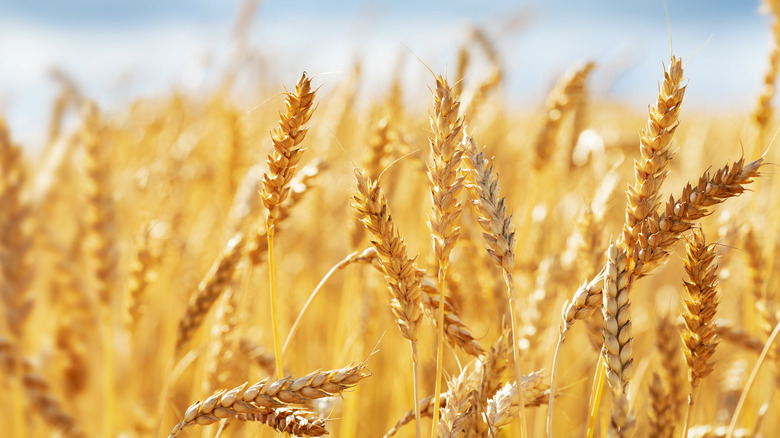New Data Shows The Price Of Food May Begin To Decline
If you've paid attention to the news over the past year or have set foot inside a supermarket recently then you're probably aware that factors such as the pandemic, supply chain issues, and labor shortages have been causing the price of many foods to skyrocket (via CNN). According to the U.S. Bureau of Labor Statistics, from 2021 to 2022, five of the six main grocery store food indexes — which includes dairy, meat/poultry/fish/eggs, nonalcoholic beverages, and cereals/baked goods — saw shocking price increases of over 10%, causing grocery store trips to become more financially stressful for a lot of people.
With high gas prices and a rise in inflation, It hasn't been clear whether the public should expect to see further increases on the price of food or if we will see those prices ease. Last month, the U.S. Department of Agriculture (USDA) predicted that food prices at both restaurants and grocery stores would continue to rise throughout the remainder of the year. However, some relief was announced this week with a dip in prices for at least two staple food items.
Wheat and seed oils markets have fallen
According to Bloomberg, there is a small amount of relief. The news agency reports that costs for agricultural commodities have fallen, which isn't necessarily good news for producers that plant and sell the crops. However, it's good news for consumers who buy them. The activities of traders on the global financial market have been heavily influenced by the risk of recession in regions such as the U.S., Europe, and China (via The Guardian), which, in turn, has tumbled the markets of staple crops such as wheat and the seed crops which produce oil, including palm, rapeseed (canola), and soy.
Another reason for prices coming down is the kickoff of wheat harvests across the Northern Hemisphere. This should help provide some relief for the shortages caused by a lack of exports from the warring countries of Russia and Ukraine (via Euronews).
Though certain instabilities remain, such as predicted dryness and drought that could impact commodity crops, shoppers may soon see a little bit of relief at the supermarket. "There are signs that the global food crisis may be nearing its peak," Chua Hak Bin, an economist at Maybank Investment Banking Group, told Bloomberg.

